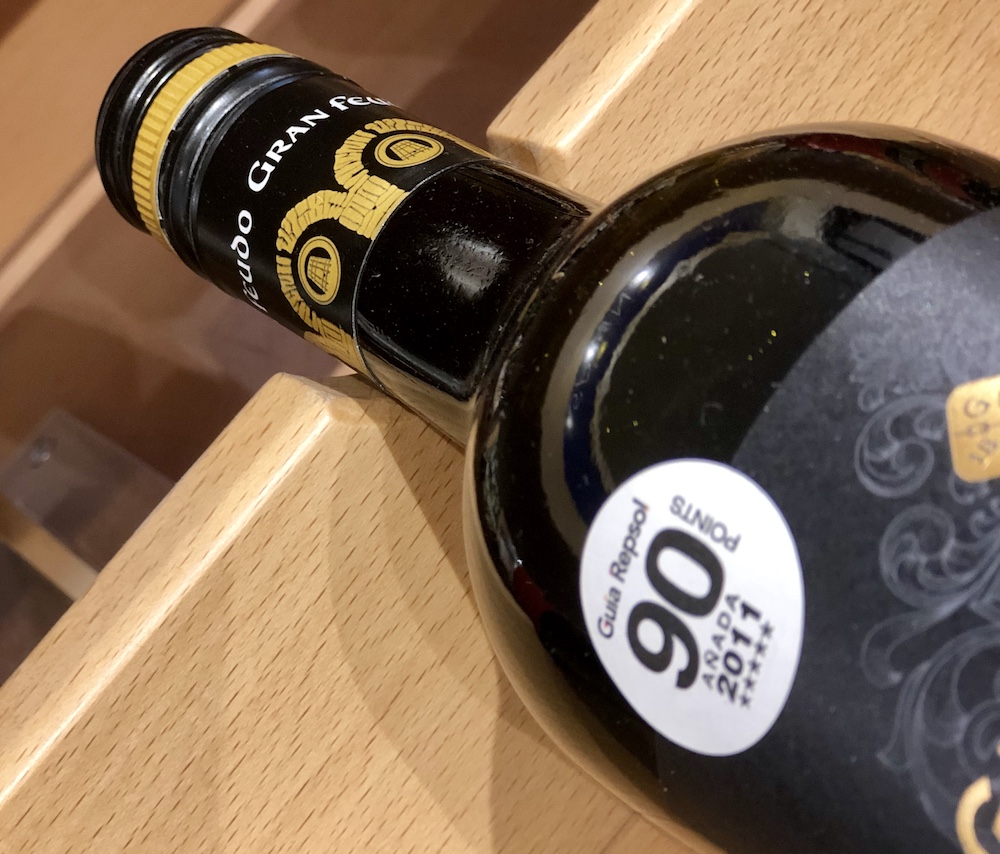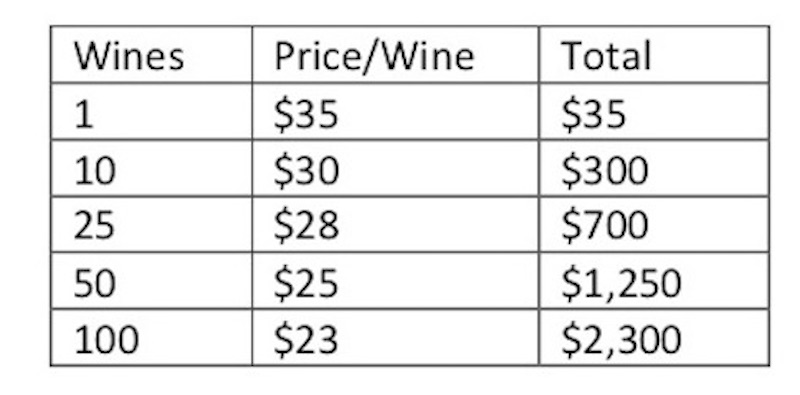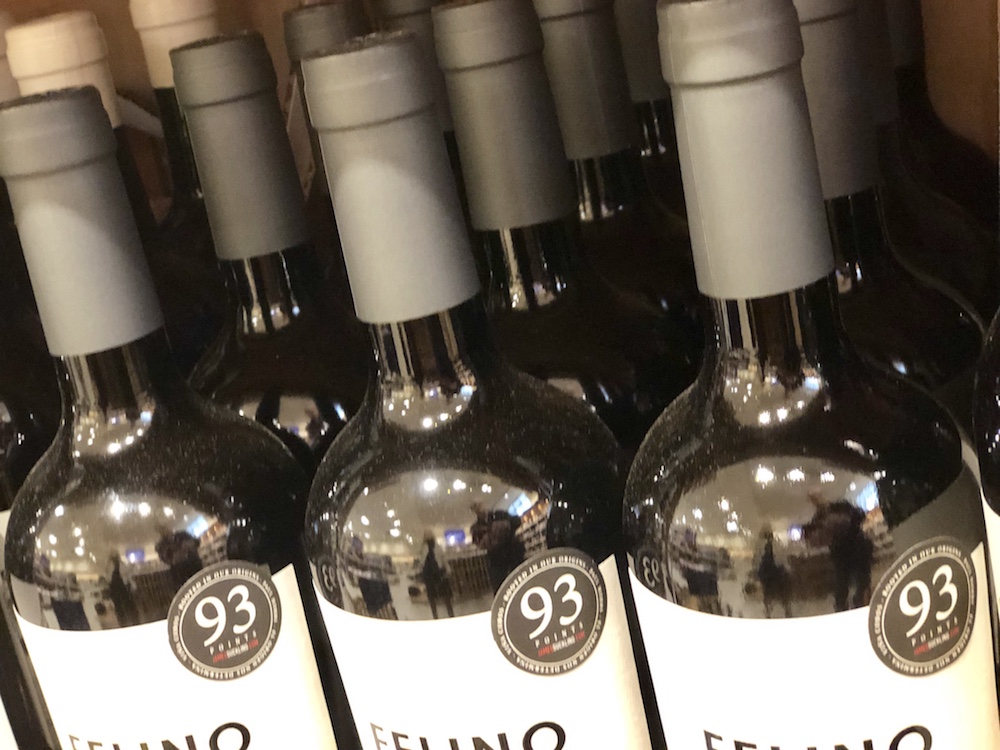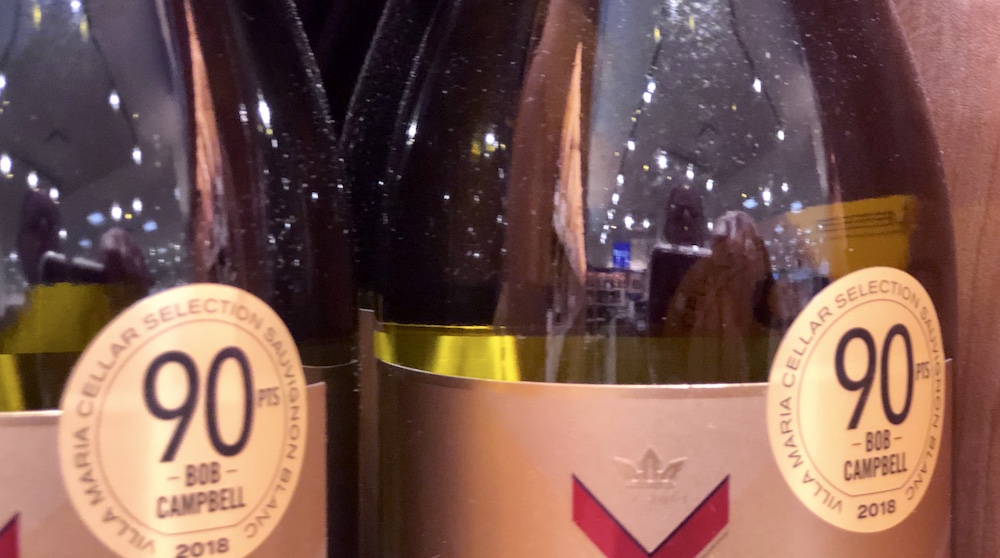By Rick VanSickle
With a simple email sent to countless wineries across Canada this week, a new era in wine critiquing was born.
And it isn’t pretty.
“In light of the LCBO’s recent restrictions on media access to new Vintages releases, WineAlign was approached by Drinks Ontario to create a service to help get wines reviewed in a professional, objective and timely manner. In response to this request, we are introducing a new service called Tastings,” the email from one of Canada’s largest wine review websites said.
Note: WineAlign comments on this in a full Q&A, posted later in the this story. WineAlign responded to Wines In Niagara after the original post and some editing as been done to reflect that.
“Tastings is a service that you pay for and in return you get a quick turnaround with multiple reviews from LCBO accredited wine writers. Furthermore, since you are paying for this service you have the option to delete any reviews that you are not happy with.”

It didn’t take long for reaction to pour in with wineries, non-WineAlign wine writers, and Canada’s only print magazine dedicated to wine, Quench, quick to criticize a decision that many feel amounts to pay-to-play, or, at the very least, the appearance of it.
“This is complete bullshit,” said one winery executive to Wines In Niagara, who wished to remain anonymous. “It sounds like pay-to-play to me, and an apparent conflict of interest.”
WineAlign explained the reasons behind the new “Tastings” fee this way:
“In order to deal with our mounting, real costs of hosting these tastings (storing, handling and removal of bottles and boxes, paying writers, adding wines to our database, etc.), we will be charging a small fee for each wine received, added and reviewed, effective immediately. This includes all Vintages/LCBO listings, tastings for winery profiles, regional profiles, Exchange cases, consignment wines and NISS submissions. These tastings will take priority over unsolicited samples dropped off at the office.

“And since you are paying and this is a service, you can be assured that your wines will be reviewed in a timely manner. Reviews will be posted on WineAlign subject to our normal editorial practices. A new feature of this service is that reviews will be deleted upon request (WineAlign later said that if one review is requested for deletion, all reviews will be deleted).
“Because our writers attend many events and travel extensively to keep their palates and perspectives sharp, there is no guarantee that all writers will be at every tasting. However, wines will always be scored by multiple writers.”

And because the wines that wineries pay to get reviewed are reviewed ($35 per bottle, cheaper if you submit more than one) by multiple “LCBO accredited wine writers” (whatever that means) wineries can eliminate the low scores.
The email was sent to wineries and agencies with letterhead shared by both Drinks Ontario and WineAlign, however, when Drinks Ontario was contacted, executive director, Jim Lisser, said the email WineAlign sent out “should not have had Drinks Ontario appear as a partner. We provided collaborative information (to WineAlign) based on member feedback and they changed the wording moving forward.”
Drinks Ontario president, Andrew von Teichman, whose member-based industry organization represents over 120 agents, producers and wine regions, said WineAlign is a member of Drinks and when the LCBO “summarily changed their press tasting program, WineAlign, and many other journalists, reached out to us,” he said. Therefore, this isn’t a partnership as such, but just routine for a member within Drinks Ontario to share news about their business.”
He added that “we encouraged them to bring in other journalists to make these samples provided by the trade reach as many writers as possible. That said, they are a private company and we don’t have a say in what they do.”
Von Teichman said they worked hard on the LCBO to change back to their old system, but to no avail. “We simply want to find as many solutions to making products available to journalists … that we can. It hurts producers and agents to not have (wine critics) trying our products and the lack of samples now available to (them) is also problematic.”

Harald Thiel, owner of the Beamsville Bench winery Hidden Bench in Niagara, above, said WineAlign’s move to paid reviews and option to eliminate scores is a “fundamental change in wine writing in Canada. It’s going to make people re-evaluate what they do.”
Thiel sees a need to get wines heading to LCBO shelves reviewed by independent wine journalists but “our industry associations (Wine Marketing Association of Ontario and Drinks Ontario) need to address this. I think the whole (WineAlign) formula is flawed. I don’t think it was completely thought out,” he said.
Quench, Canada’s last print magazine dedicated to wine, was quick to send an email to Canadian wineries stating its position on paying for wine reviews.
Editor Aldo Parise sent the email under a headline saying: “They say pay. Quench says: No way!”
His email went on to read:
“Some of you may have recently received a letter detailing a pay-for-review scheme by a wine review website. Although we can’t comment on their motives, I’d like to address what you can expect from Quench in the coming years.
“The cornerstone of our print magazine and, consequently, our website and socials, has always been our writers. Their integrity is never swayed, which means Quench’s integrity is baked into our DNA. We have never and will never ask for any winery or wine agent to pay for a wine review. It’s a promise that we made to our readers over 45 years ago and it’s one that I extend to you now. You already pay to ship us samples and lose a bottle from your inventory. That is enough.
“We all run our businesses to succeed. And Quench’s success comes down to building up the local and international wine, beer and spirits industry without selling it out. That is why we are now the only print food and drink magazine publishing nationally — with over 450,000 readers every issue. Our readers demand an unbiased look at the wine world, and we give it to them.”

U.S. based wine writer W. Blake Gray, above, a Quench writer and publisher/writer of the popular wine blog The Gray Report, told Wines In Niagara that paying for reviews is not as unprecedented in wine as it may seem. “This is essentially the system used by wine competitions worldwide, and their entrance fees are much higher,” he said. “Also, consumers do not learn which wines that were submitted to wine competitions did not win medals. So the system WineAlign has created is akin to a wine competition. Therefore, it’s worth considering the relative value to consumers of wine competition medals vs. critical reviews.”
He says there is a place for both. “But generally speaking the marketplace, both trade and consumers, prefers reviews by individuals. I’m not sure why this is — some wine competitions are very well-run and provide useful information — but it is true.
“Philosophically, I am not bothered by WineAlign charging to provide reviews. All journalists are underpaid and wine journalists and wine publications are always struggling for money. This is a potential revenue stream that they need or want. It’s exactly the same revenue model that supports wine competitions.”
What does trouble Gray is “WineAlign offering to remove reviews that the wineries do not like. That goes against journalistic principles. Even though non-medal wines from competitions are not published, I don’t believe most competitions expressly allow wineries to remove their wines’ names if they get, for example, a silver medal when they wanted a gold. This offer to wineries to remove undesirable reviews is ethically questionable. It naturally leads the consumer to wonder if the ratings are for sale.”
Gray said that “ultimately, this is what I think the impact of WineAlign’s move will, and should, be. It will take a while for the word to get out to consumers, that negative reviews can be removed by the wineries, and that thus WineAlign’s ratings are ethically questionable. But the word WILL get out, because the trade will know right away, and little by little they will tell their customers. WineAlign is within its rights as a business to sell reviews like this. In the short term it should greatly increase WineAlign’s profits. We’ll see what the long-term impact will be.”

Rod Phillips, wine writer, wine historian, professor at Carleton University and wine judge based in Ottawa (above with his daughter Zoë), also takes issue with the ability of wineries to remove unfavourable reviews.
“That’s just misconceived. Readers of (WineAlign) will not know whether reviews and scores published there reflect the assessments of all WA reviewers who reviewed a wine or whether some have been, effectively, censored,” he told Wines In Niagara. “As the letter from WA says, not all reviewers will review all wines, so readers won’t know if the missing reviewers didn’t taste the wine or didn’t rate it highly enough for the producer/agent.”
He said charging to have wines reviewed doesn’t have to give producers/agents the right to control the reviews. “They could be told that all reviews, positive and negative will be published. WA’s decision to allow producers to have poor reviews deleted seems like an inducement to encourage producers to pay for reviews. How can producers lose? It’s a win-win: more money for WineAlign and only positive reviews for producers. And that’s why it’s wrong.”
Toronto-based wine writer André Proulx, whose work can seen here on his blog Wine Review with André Proulx, said: “How can you call any tasting objective when money is being exchanged to have the product reviewed? Plain and simple this is pay for play — especially with the wineries being able to control what reviews get taken down (editor’s note: we’ve since learned if one review is taken down, they all come down).
“Also — doesn’t WineAlign already charge a fee to their users for the premium service?”

Wines In Niagara sent notes to a few wineries in B.C. for reaction to the new service, but only Leeann Froese, co-owner of Townhall Brands, which represents many Okanagan wineries, and Christine Coletta, co-owner of Okanagan Crush Pad, got back to Wines In Niagara for on the record comments.
“I did receive the letter last week and also the email from Quench this morning saying they will never solicit payment for reviews,” Froese said. “I knew when I saw the WineAlign letter last week that it would open up some controversy.”
She added that “as all of these different wine publications and even mainstream publications continue to die off, the pay to play model just becomes more prevalent, whether it be to an influencer, traditional legacy advertising, or paid advertorial content.
“To me, the key is disclosure, so that the reader understands what’s behind the content. It will be very interesting to see how disclosure happens. It’s a bit of a Wild West here in Canada because we’re not regulated the same way they are south of the border.”
Coletta said: “I don’t take issue with paying for reviews. I understand the value of wine journalist reviewing my wines – in fact I count on it. I take to heart honest feedback as it helps us get better at what we do. What I do take issue with is the ability to delete reviews, which in my opinion is not honest or transparent. Imagine entering a wine competition and having the ability to remove your wine from the list of winners if you didn’t like the medal earned. Putting your wines “out there” means taking the good with the bad from the trade, media and consumers.”
Reaction from WineAlign
Here is the Q&A with McCaw, as it was sent back to Wines In Niagara:
1) Why is there a need to have wineries pay for wine reviews? What was the reason for the change?
Wineries do not have to pay for wine reviews. Unsolicited samples can still be sent to our office the same way unsolicited samples are sent to any other wine reviewer. But with the unsolicited approach, a winery/agent has no assurance that a wine review will be published/posted, and in a timely manner.
Each month we get hundreds of wines sent to our office for review – it’s overwhelming at times. What we are doing differently is that we now have a service that will prioritize
those wines that are submitted through our tasting service. By using our tasting service, a winey or agency can send one bottle, pay one delivery fee and get reviews from multiple wine writers in a timely manner.
Early this year the LCBO drastically reduced the frequency and quantity of wines made available for VINTAGES tastings. According to the LCBO, one of the key reasons for this reduction was “fiscal responsibility” (i.e. to save money). So, the cost of this program was pushed back onto Ontario wine agents. WineAlign was approached by multiple wine agencies and asked to set up a program to help get wines reviewed that were not available at the VINTAGES media sessions. In order to do so we essentially have to replicate all of the expenses that VINTAGES is offloading (an office to taste, receiving and organizing wines, cleaning up, etc.). In addition, our wine writers have to commit to a separate day to come into the office to review wines and expect to be compensated for that.
After devising this program, we contacted several wineries for their thoughts and feedback. The response was overwhelmingly positive. We decided to make it a service available to everyone. We really envision this as a service to help with portfolio tastings.
2) Some say that wineries paying for reviews on a wine review website (or in any media) is a conflict of interest or pay to play at best.
WineAlign is a business and employs some of the most experienced wine reviewers in Canada, and the world. Wineries look to our reviews as credible and important, especially in the Canadian market. So do our readers. Our reviewers are professionals, and professionals are paid for their expertise. To prioritize the huge number of wines we are asked to review, and to cover the administrative costs of reviewing these wines (we did 60 wines Oct 30th alone) we expect a sharing of expenses. We have instituted an administrative fee so that our reviewers and staff can make a living based on the time and talent they bring to the task. Our perspective on what makes a wine great, or great value, is not the least affected by this compensation.
3) The added bonus of wineries who payreviews being able to delete reviews they don’t like is concerning on many levels. Won’t wineries be able to manipulate a higher score if they eliminate two low scores and keep two high scores?
It’s important to state that wine publications don’t publish poorly scored wine in the first place. However, wineries paying for this new service need to see all the wines reviewed, both the good and not so good. Due to the volume of wines being added it’s almost impossible, from an administrative perspective, to pre-check with each winery on every wine before publishing. The solution to this problem is to un-publish all reviews for a wine on demand.
But to be ultra-clear, deletion is all or nothing. We will delete ALL of the reviews associated with a wine upon request, not just the less favourable/lower scoring reviews. There is no cherry picking.
Our policy on deleting a single review is long-standing and will stay in place. If an agency or winery finds our review poorly written (no one is perfect) or suspects a faulty bottle, we will remove the review temporarily, provided another sample is sent promptly. We will review the wine again and the new review will stand.
4) Are you concerned that this will further erode the trustworthiness concerns many consumers already have over wine reviews?
Absolutely not. That is the last thing we would want to do. Our objectivity and trustworthiness are at the root of our business. We consider ourselves a beacon of rational wine scoring in a world of run-away score inflation. We’ve been very consistent in our articles (see below) where we have been critical of the LCBO using ridiculous high scores to help sell wines. In fact, one of the reasons for this service is to help offset the loss of advertising revenue due to the objectivity of our wine reviews. It’s a sobering moment when the marketing manager of a major national brand says: “Less than 90pts hurts our brand so we can’t do business with you.”
Some closing thoughts

Wine reviewing is increasingly coming under attack as more and more join an already crowded market for readers’ eyes and ears. It is increasingly difficult to ascertain what are real reviews and what are tainted with ulterior motives. Just read through the comments on a thread started by Vineland Estate winemaker Brian Schmidt’s Facebook post (privacy is set on public) on this very topic. There are myriad comments about the validity of wine reviews and the foundation on which they are built — subjective scores that vary wildly from reviewer to reviewer.
Schmidt himself waded in with this comment:
“Wineries seeking positive attention for their wines are challenged to navigate in a world where pay to play “competitions” or reviews will gain the eyes they are looking for, but will have to sell a small piece of their soul each time knowing that the positive review or award wasn’t fully earned .. it may have been paid for. Now that I have learned there may be an entity where you might have the right to delete any reviews that you have paid for but you do not approve of makes it even harder for one to believe that the system isn’t flawed.”
A pay-to-play system only muddies the waters further and we should all resist the urge to explore this avenue of revenue. Traditional media is being squeezed out by more modern ways of looking at things, and sometimes it doesn’t jibe with the ethical principles of journalists. Consumers have to navigate the waters with caution and know the source of their information and motives behind them. They should find reviewers who they can trust and align their taste buds to. View with skepticism any writing that has the appearance of “advertorial” — writing that has been paid for by a client. It’s just not real journalism and it should be viewed as such.
WineAlign critics are among Canada’s finest. I know them and respect their work and do not think any of them would be swayed by the company’s new direction. It will be business as usual for them. I can’t see any of them, however, happy with the new “tasting service” allowing reviews that wineries don’t like to be deleted just because the winery doesn’t feel the scores are high enough. It’s also blatantly unfair to wineries who send unsolicited reviews to WineAlign and aren’t afforded the same gesture. I hope the critics at the WineAlign will convince the decision makers to eliminate that part of the service. I also hope that WineAlign and Drinks Ontario can work with more independent wine journalists to open up tastings to all who want to taste new wines arriving into the marketplace so there is a variety of reviews and multiple voices.
Wines In Niagara tasting policy
As publisher of Wines In Niagara and the main writer of the site, I come from a journalist background and have been an editor and writer for newspapers my entire adult life. I still edit newspapers for Postmedia as my full-time job. We write many wine reviews on this site but I do not consider wine reviews the thrust of the website. We are more interested in how the wine was made, what decisions went into making the wines and understanding what’s in the bottle. Over half the wines we review are samples sent to Wines in Niagara unsolicited. We never ask for wines to be sent to us (unless there is a compelling reason to do so … such as a retrospective of some sort we want to explore and need winery assistance to make it happen) but if we do receive them, we taste like we taste all wines and review what we feel are the wines that will appeal to our readers. There is no guarantee that a wine review will be published and we do not publish wines that score (on the Parker scale) less than 85 points based on our palates (there are rare occasions that we can’t ignore a low scoring wine and will comment if we feel it is of value for our readers). We definitely do not charge wineries to taste their wines and never will. Both Mike Lowe and I taste wines for review and we are both paid by the website for those reviews, not the winery. Our revenue, though modest, comes from advertisers on the website. These are advertisers we know, not Google ads targeted through technology. We believe in local for our stories, reviews and advertising. It’s how we built our model. Advertisers do not curry favour from being an advertiser and I believe advertise on the site because we create content that attracts a great many readers who visit to learn about Canadian wine.
That is who we are.






Thanks for sharing all of this and including my comment Rick. Brings up a lot more for me having read it:
One thing you note: “Traditional media is being squeezed out by more modern ways of looking at things, and sometimes it doesn’t jibe with the ethical principles of journalists.” Yep. This is the tempest.
There are INDEED more modern ways to create a revenue. Post Media shared this one year ago:
“…we are focused on various new products and initiatives including digital marketing services and providing customized, full-service solutions to increase a business’ overall revenue including website
development, search engine optimization (SEO) and search engine marketing (SEM).” – taken from their annual report.
A fellow agency owner colleague did NOT like this combined with the fact that there is a $600 million govt journalist fund. He said “The fact that what are supposed to be unbiased news outlets are instead focusing more on digital ad revenue over actually reporting the news is everything wrong with unregulated capitalism.”
So again I say it is about disclosure… so if written content is sponsored or product is gifted it should be stated, and that is how the consumer knows. The public can then decide if they want to continue to value an opinion or not, knowing the story.
Today it is very much like all of the people who are curating content on Instagram – many of them will not post unless they are paid to do so, but not all in Canada disclose the way they are legislated to in the US.
As a marketer, the way to get the word out about wine has been shifting beneath my feet for the past 12 years. My job is to get the brands I rep in front of the right eyeballs, and how to do that continues to evolve.
While I understand comments made regarding full disclosure I cannot help but think this trend will be the end, in the mindset of the general public, of decent unbiased wine reviews to the detriment of all.
Mark, I truly hope not. The waters are muddy, but let’s not lose hope yet. Find someone you trust, some who has a similar palate to you, and trust them. Wine critiquing is still important as long as you know the source and the motives behind the scores. But most important, read the reviews. Scores are subjective, words are more reflective of the wine
I’ve spent much of my life selling wine in restaurants, to restaurants and consumers in general. There is a skeptical view among the public that wine reviews and awards are all purchased and therefore meaningless. Serving as a taster, judge, reviewer I know this not to be true but this new system is fuel for the skeptics. All wine reviewers deserve to get paid and a cost to submit samples for review is understandable but the option to remove uncomplimentary reviews is going to create complete distrust of the entire wine media. Thank you for allowing comments.